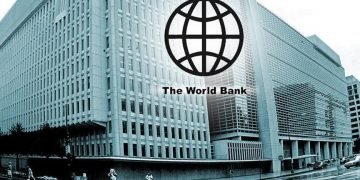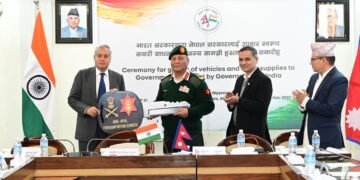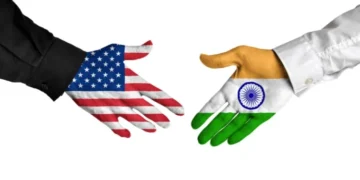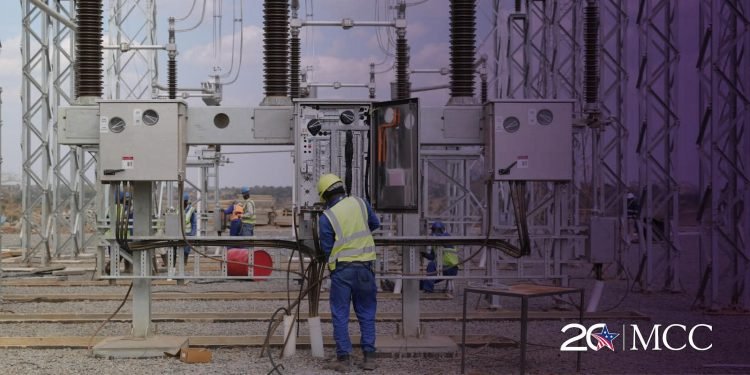Kathmandu, Jan 24: The Millennium Challenge Corporation (MCC) on Tuesday celebrated the 20th anniversary of its innovative international development model, and the poverty-reducing benefits the agency has delivered to millions of people worldwide, it has been said.
In the last two decades, the MCC has delivered nearly $17 billion in aid to 47 low-income and lower-middle income countries across six continents, bringing out positive changes on the world’s Sustainable Development Goals (SDGs) with programmes lifting more than 300 million people out of poverty, including Nearly half a million farmers have been trained, thousands of commercial and civic enterprises assisted, and nearly $100 million in agriculture and rural loans disbursed, according to a statement issued by the MCC.
History of MCC in Nepal
Nepal was first chosen to develop a threshold program in December 2011. According to the MCC, following a consistently improved scorecard performance, the MCC board selected Nepal for a compact in December 2014. MCC and the government of Nepal signed the compact in September 2017.
But it took around five years for the Government of Nepal to ratify it. The House of Representatives of Nepal ratified the pact in February 2022 amid strong protests.
The issue briefly sparked divided views on the MCC compact. Some people including some party leaders objected to it claiming that that the MCC compact is part of US’s Indo-Pacific Strategy, which has military components that are aimed at countering China, a friendly neighbour of Nepal. On the other hand, others supported it as a part of international supports for the country’s economic prosperity.
However, economists suggested that Nepal should accept any economic support and there was no harm for the country in passing the MCC compact. Even China was positive saying that it would welcome any international assistance to Nepal if it is for the country’s economic prosperity.
The agreement has now faced little or no protests. The politicians who once heavily came down on it are now silent.
Progress so far
In August 2023, the Millennium Challenge Corporation Nepal agreement came into force, following about five years of a delay caused by controversy surrounding the compact. Finance Minister Prakash Sharan Mahat and Vice President of Compact Operations at the MCC Cameron Alford exchanged the letter on the Entry into Force of the Nepal Compact.
As part of the MCC compact, the United States will invest $500 million in Nepal’s power and transport infrastructure.
Under this compact, a 400kV transmission line will be built and a part of the East-West Highway will be improved using the MCC grant.
According to the latest progress report by the Millennium Challenge Account-Nepal, a Government of Nepal-formed agency to manage the compact developed by the Office of the Millennium Challenge Nepal in coordination with the MCC, five of the six conditions in the compact agreement required for its implementation have been met.
The conditions include the declaration of the electricity transmission project as National Pride Project. Similarly, the law establishing the Electricity Regulatory Commission, the signing of Project Implementation Agreement, the operational work plan and agreements between Nepal and the Indian governments for cross-border transmission line, and the compact ratification by Nepal’s Parliament have been completed.
Sufficient progress on land acquisition and forest clearance for project site access is expected by August 30. Land acquisition for the Ratmate substation is complete.
History of MCC
The Millennium Challenge Corporation is an independent U.S. government agency working to reduce global poverty through economic growth while providing time-limited grants and assistance to countries that meet rigorous standards for good governance, fighting corruption and respecting democratic rights.
The Bush Administration signed MCC into law on January 23, 2004, as an experiment to test cost-effective, and data-driven methods to address global poverty. It was a small U.S. government agency staffed by development visionaries who were passionate about impactful solutions to drive global change. The approach was unprecedented – partner with low-income countries that share a commitment to good governance, democracy, and investing in their people; support sustainable country-led solutions to their greatest constraints to economic growth; and use data to drive all decision-making, and the experiment worked, it has been said.
“MCC has grown into a special place,” said MCC CEO Alice Albright. “MCC sees opportunity where others see challenges; this organization gives grants, when others give loans; and this team believes in the potential of a better tomorrow, even when times are tough. There is no other international development agency in the world that lives the values of selectivity, transparency, and country ownership the way MCC does, and the agency’s results over the past twenty years show just how powerful that model is in practice.”
Thousands of kilometers of roads completed
Nearly half a million students have been participated in MCC-funded educational activities, tens of thousands of instructors trained or certified through MCC-supported activities, and over a thousand educational facilities constructed, according to the statement.
Hundreds of millions of liters per day of water production capacity have been added, and nearly one hundred thousand people trained in hygiene and sanitary social and behavior change.




















